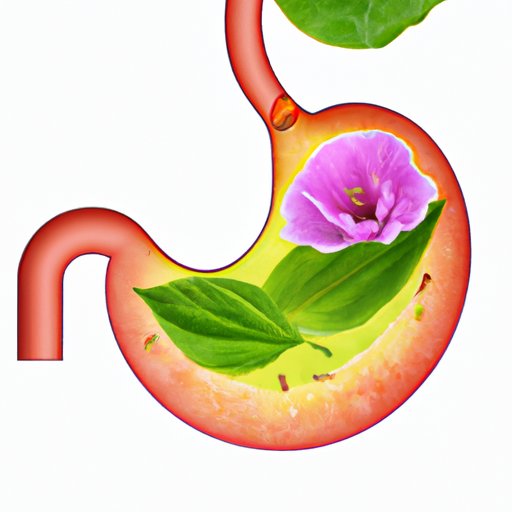
I. Introduction
Stomach polyps are abnormal growths that develop on the lining of the stomach. While most stomach polyps are benign, some cases can lead to cancer if left untreated. Therefore, it’s important to seek treatment as soon as stomach polyps are detected.
The purpose of this article is to explore the different options available for treating stomach polyps. We will cover traditional medical treatment, natural remedies, and prevention tips to help you keep your stomach healthy.
II. What are Stomach Polyps?
Stomach polyps, also known as gastric polyps, are growths that form on the lining of the stomach. Most stomach polyps are benign, but some can become cancerous if left untreated. The exact cause of stomach polyps is unknown, but they are more common in individuals over the age of 50 and those with chronic stomach inflammation.
There are several types of stomach polyps, including hyperplastic polyps, fundic gland polyps, adenomas, and inflammatory fibroid polyps. Each type of polyp has its own characteristics and potential risks.
III. Symptoms of Stomach Polyps
Stomach polyps often do not cause any symptoms, especially in the early stages. However, some common symptoms include abdominal pain, nausea, vomiting, weight loss, and blood in the stool. It’s important to seek medical attention if you experience any of these symptoms.
IV. Traditional Medical Treatment for Stomach Polyps
Traditional medical treatment for stomach polyps involves endoscopic removal, surgery, and medications.
Endoscopic removal, also known as polypectomy, involves removing the polyp using a thin tube with a camera attached. The doctor will insert the tube through the mouth and into the stomach, allowing them to visualize the polyp and remove it using a small tool.
If the polyp is large or has a high risk of developing into cancer, surgery may be necessary. During surgery, the polyp and a portion of the surrounding tissue will be removed.
Medications, such as proton pump inhibitors or antacids, may also be prescribed to help reduce inflammation and protect the stomach lining.
V. Natural Treatment for Stomach Polyps
In addition to traditional medical treatment, natural remedies can also help manage stomach polyps. Diet and lifestyle changes, as well as herbal remedies, can play a significant role in reducing the risk of stomach polyps and managing symptoms.
Diet and lifestyle changes can include avoiding processed foods, alcohol, tobacco, and stress. Eating a diet rich in whole foods, such as fruits and vegetables, can also help reduce inflammation in the stomach lining.
Herbal remedies, such as ginger, licorice root, and turmeric, have also been shown to have anti-inflammatory properties. However, it’s important to consult with a natural health practitioner before taking any herbal supplements.
VI. Effective Home Remedies for Treating Stomach Polyps
There are several home remedies that can help manage stomach polyps, including:
- Drinking chamomile tea, which has anti-inflammatory properties
- Taking probiotics to help restore a healthy gut microbiome
- Eating foods high in fiber, such as whole grains and legumes, to help maintain regular bowel movements
- Taking a daily dose of apple cider vinegar, which is believed to help reduce inflammation in the stomach lining
It’s important to note that while home remedies can be effective in managing symptoms, they should not replace medical treatment.
Safety precautions should also be taken when using home remedies. For example, apple cider vinegar should be diluted before consumption to prevent damage to tooth enamel and irritation in the stomach.
VII. Tips for Preventing Stomach Polyps
Lifestyle changes can play a significant role in preventing stomach polyps. Some tips to help prevent stomach polyps include:
- Avoiding processed foods, alcohol, and tobacco
- Eating a diet rich in whole foods, such as fruits and vegetables
- Maintaining a healthy weight
- Reducing stress through activities such as yoga and meditation
VIII. Conclusion
Stomach polyps may not always cause symptoms, but they can lead to cancer if left untreated. Traditional medical treatment, such as endoscopic removal and surgery, can be effective in treating stomach polyps. Natural remedies, such as diet and lifestyle changes, as well as herbal supplements, can also play a role in managing symptoms and reducing the risk of stomach polyps.
Prevention is key to maintaining a healthy stomach. Lifestyle changes, such as avoiding processed foods and reducing stress, can help prevent the recurrence of stomach polyps. It’s important to seek medical advice if you experience any symptoms of stomach polyps to ensure proper diagnosis and treatment.




